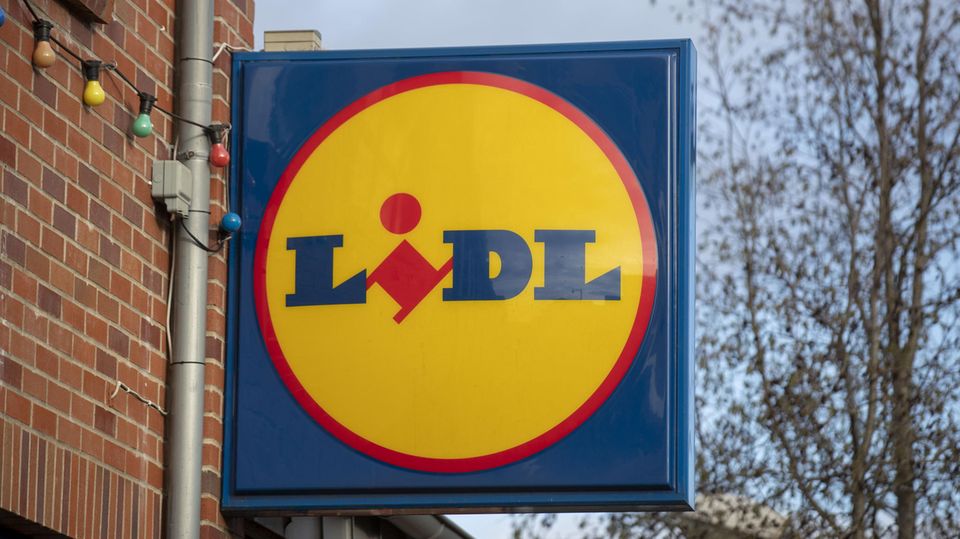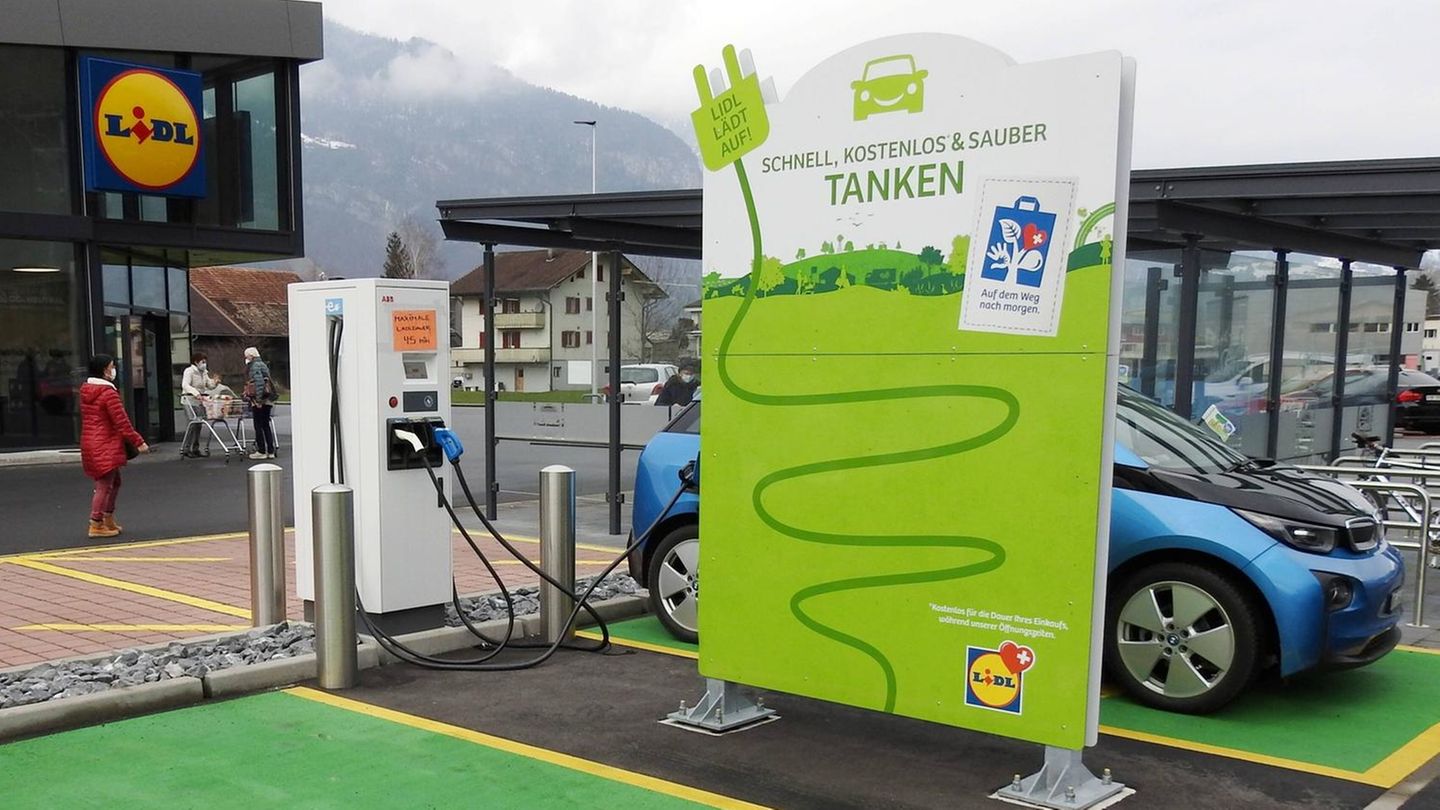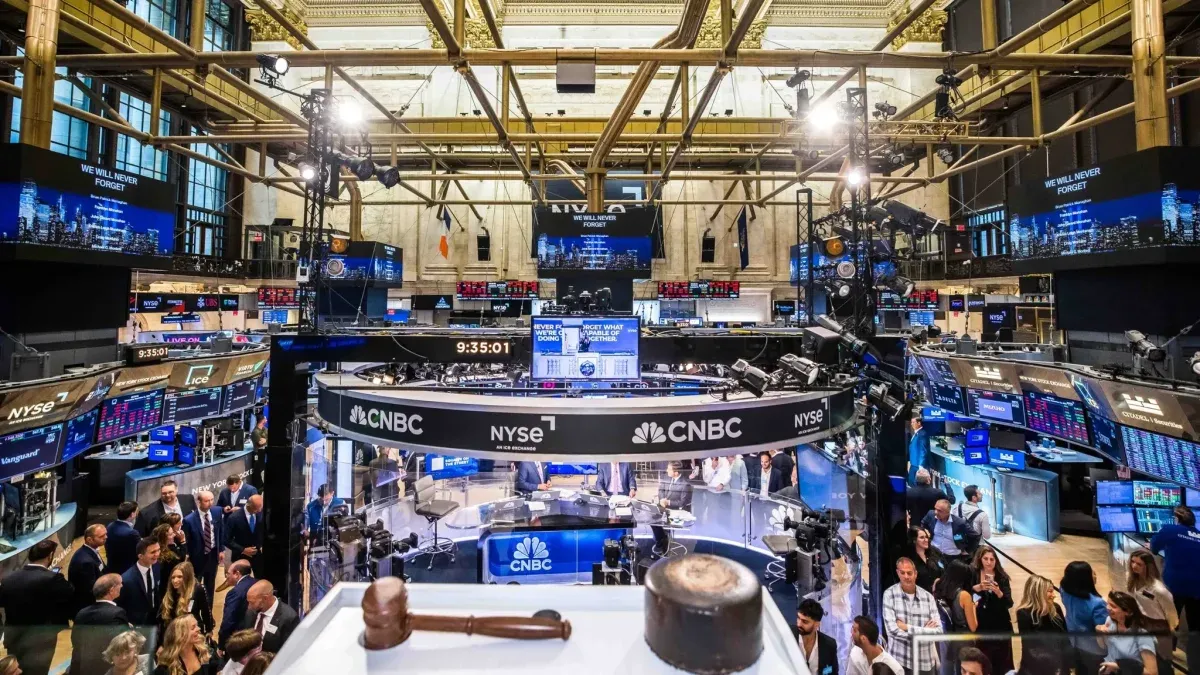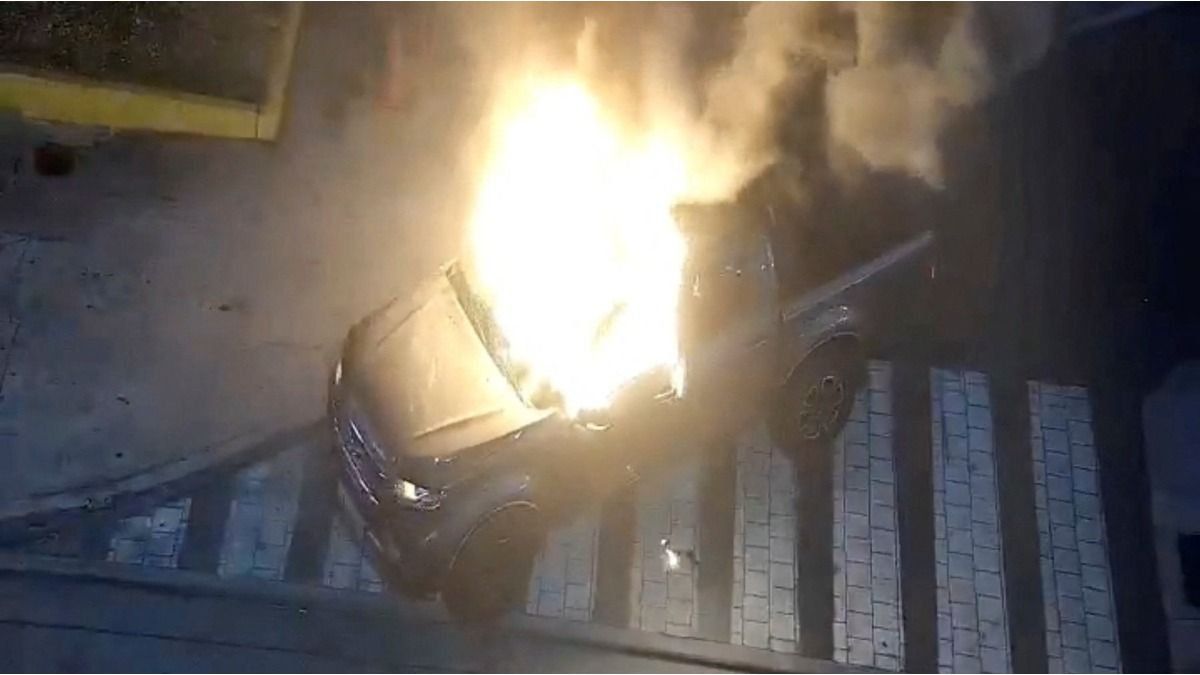When e-cars were still a rarity on German roads, retailers often offered free charging options in parking lots. But with the growing number of e-cars, charging in stores is becoming increasingly expensive.
Lidl and Kaufland are now also following the trend to abolish free charging in supermarket parking lots, as the Schwarz Group announced on Monday as the parent company.
The group of companies will introduce “from September 12, 2022, a fee for the green electricity tanked,” it said. Each kilowatt hour at AC charging points with a charging capacity of up to 43 kilowatts then costs 0.29 euros per kilowatt hour, at DC charging points with a charging capacity of up to 149 kilowatts it is 0.48 euros per kilowatt hour. At individual locations, 150 kilowatts or more can be charged for EUR 0.65. With the end of free charging, the further expansion and maintenance of the e-charging stations should be guaranteed.
1300 charging points at Lidl and Kaufland
Lidl and Kaufland currently operate around 1,300 charging points. The boom in electric cars can be clearly felt at these charging stations, it said. In 2020, an average of four electric cars would have charged their batteries a day at a Lidl e-charging station, and nine cars at Kaufland. In 2021, this number has already doubled in both retail divisions. In the meantime, the trading company has recorded an average of around 15 charging processes per station at Lidl and around 20 at Kaufland on peak days.

As early as spring, a survey by the Cologne retail research institute EHI showed that the number of retailers charging for charging had increased significantly within a year. According to this, within twelve months, the proportion of dealers where charging was no longer free of charge increased from 29 to 42 percent.
Around 26 percent of the dealers still offered reduced rates for customers when charging. At 15 percent of the dealers, customers were allowed to continue charging free of charge. Another 15 percent offered charging for everyone free of charge.
The EHI project manager for electromobility, Cathrin Klitzsch, emphasized that even after the study was completed, the “trend away from free refueling in German retail continued”. At the same time, the capacity of the charging stations newly installed in the parking lots at the shopping locations has increased step by step. This makes it possible to fill up with more electricity in a shorter time.
Sources:
Source: Stern
Jane Stock is a technology author, who has written for 24 Hours World. She writes about the latest in technology news and trends, and is always on the lookout for new and innovative ways to improve his audience’s experience.




